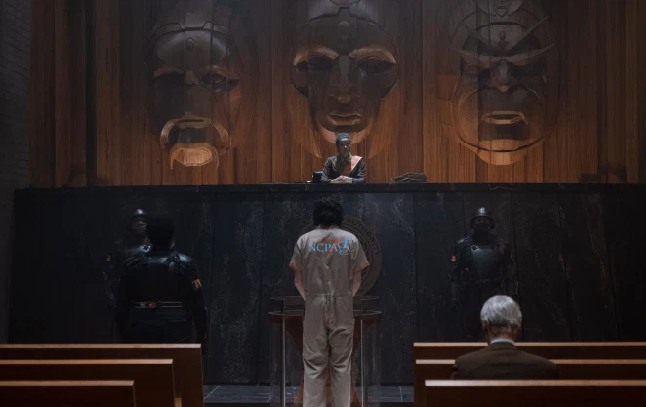Kids faking Covid tests, apnea drugs, Delta makes its mark, and more
07 Jul 2021
Posted by Andrew Kantor
Fake positives
Apparently — and maybe I’m the last to know this — kids have figured out how to use soda, orange juice, or another mild acid to fake a positive Covid-19 test and thus get out of school. (At least if they’re using a lateral-flow test.)
Luckily there’s an easy way to test the test using a buffer solution, as Professor Mark Lorch explains. He also goes into, in detail, why the acid works on the test, and how the buffer reverses it.
GPhA and NCPA respond to FTC request for comment
The Federal Trade Commission held a public meeting last week, and there was one subject you might be interested in: “Investigations into Key Enforcement Priorities.” No, don’t fall asleep. See, those “enforcement priorities” include PBMs and drug makers, and the FTC is giving the staff the go-ahead to “use ‘compulsory process,’ such as subpoenas” to investigate them.
Even more important, GPhA submitted written comments to the FTC for consideration at the meeting — you can read the letter here — and NCPA General Counsel Matthew Seiler personally appeared before the commission to speak about PBMs and their anticompetitive practices harming patients and neighborhood pharmacies.

Artist’s conception
Wellstar shout-out
Congrats to the 79 Wellstar physicians who made Atlanta magazine’s 2021 Top Doctors list. (We would tell you who they are, but we don’t have a subscription and the list is subscriber-only.)
Delta force
In the real world (Israel, specifically) the Pfizer vaccine — and, by extension, the Moderna shot — was only about 64 percent effective against the Delta variant of Covid-19.
The federal government is ready with boosters if they turn out to be necessary, but at this point it’s not clear whether a booster would help, or if a new and tweaked vaccine is necessary.
Scott Gottlieb points out that we’ll probably reach 85 percent immunity either through vaccination or infection, the latter thanks to the fast-spreading Delta variant. (Downside: The long-term effects of Covid are No Fun at All.)
You might want to avoid Arkansas for the moment
Covid-19 cases jumped a rather frightening 25+ percent over the past week. Hello, Delta. (The variant, not the airline.)
It’s like a second brain
From Socrates complaining that writing destroyed memory and weakened the mind, to today’s hand-wringing about smart phones and the Internet, someone is always worried the Technology Will Ruin Everything.
Fear not, says a University of Cincinnati philosophy/psychology professor. Today’s technology is actually making us smarter by doing the boring thinking and remembering for us!
For example, he says, your smart phone knows the way to the baseball stadium so that you don’t have to dig out a map or ask for directions, which frees up brain energy to think about something else. The same holds true in a professional setting: “We’re not solving complex mathematical problems with pen and paper or memorizing phone numbers in 2021.”
Apparently — and who knew? — your brain only has so much room in it. By not having to memorize phone numbers and directions, there’s more space for, er, important stuff. Like thinking.
I guess there’s no reason to teach your brain about spatial relationships or geography, or in learning how to solve those complex mathematical problems, even if we eventually turn to tools to do that for us. What value could there be when there’s always Google?
That’s great, but…
A group of scientists has written a letter in the Lancet saying ”We stand together to strongly condemn conspiracy theories suggesting that COVID-19 does not have a natural origin” — i.e., that it came from the Wuhan Institute of Virology.
But … that’s not what’s being suggested (except by conspiracy theorists). What’s being considered is not that the virus was created in Wuhan, but that it was being studied there … and escaped.
Drugs for sleep apnea?
Maybe. Aussie scientists say that a combination of butylbromide and reboxetine was “able to keep muscles active during sleep in people without sleep apnoea [sic], and assist their ability to breathe,” reducing the severity of the condition by 30 percent.
“Almost everyone we studied had some improvement in sleep apnoea. People’s oxygen intake improved, their number of breathing stoppages was a third or more.”
What if they gave a lottery and nobody cared?
You know those state-sponsored vaccine lotteries, where you’re entered to win cash by getting vaccinated? According to Boston University researchers, when you compare them to states without such lotteries, they don’t work. For example, Ohio’s “Vax-a-Million” program got a lot of attention at first, but when the dust settled … meh.
“[P]rior evaluations of the Ohio vaccine incentive lottery did not account for other changes in Covid-19 vaccination rates in the United States, such as those that may have been due to expansion of vaccination to ages 12-15.”
That doesn’t mean other incentives don’t work, just “that state-based lotteries are of limited value in increasing vaccine uptake.”
Podcast of the Week
RadioLab’s episode “The Dirty Drug and the Ice Cream Tub.” It’s the story of how a little dirt from Easter Island became rapamycin — the anti-rejection drug that’s showing a lot more promise — thanks to the (partially illegal) work of one scientist.


